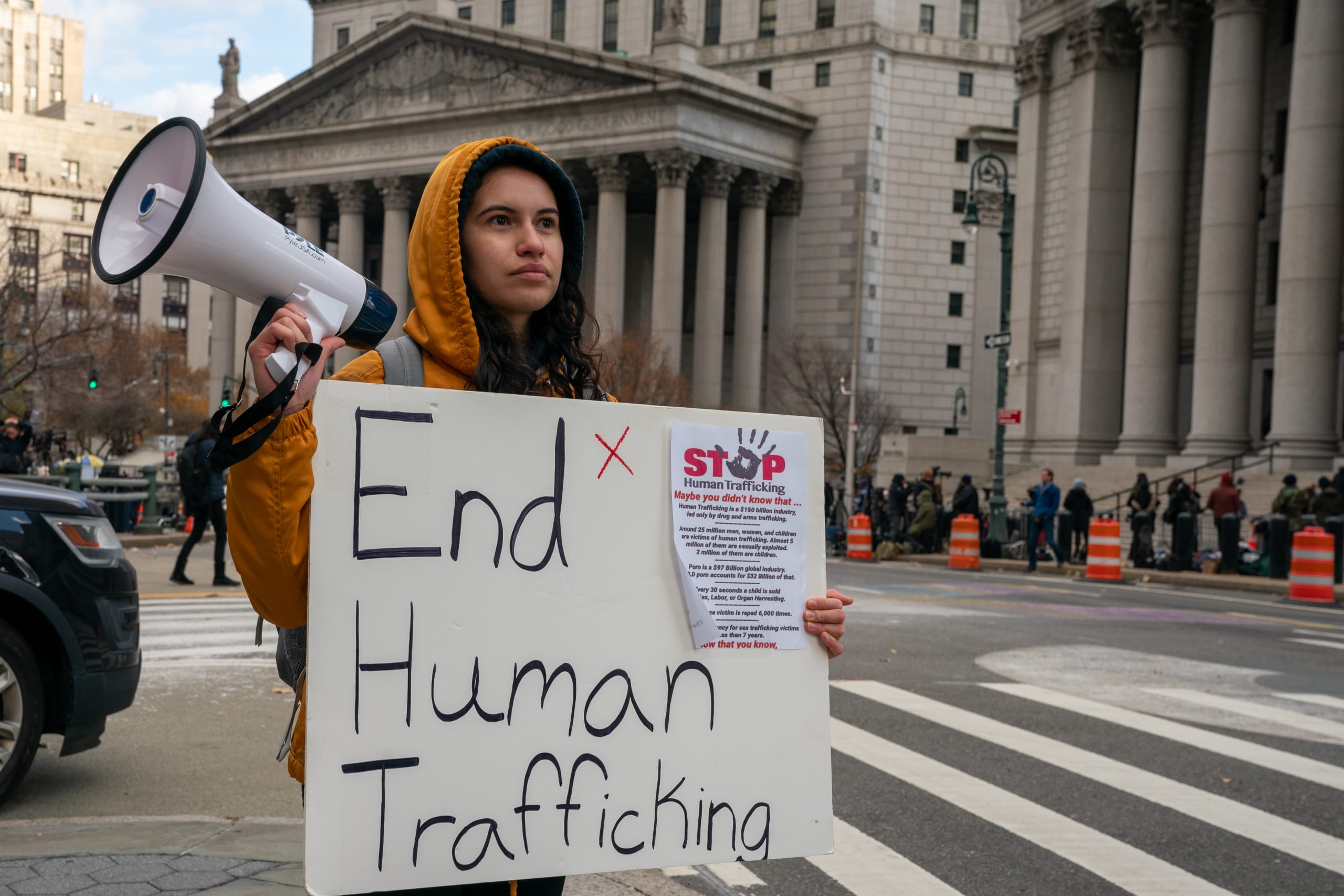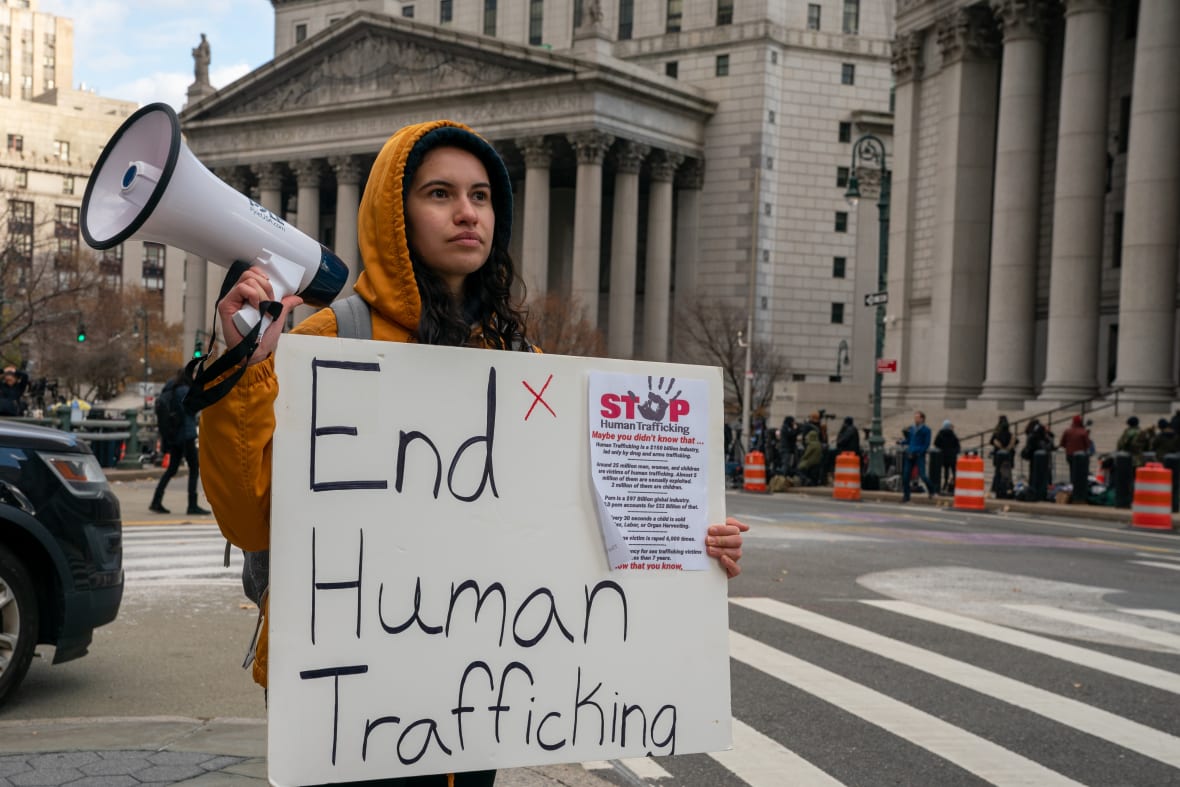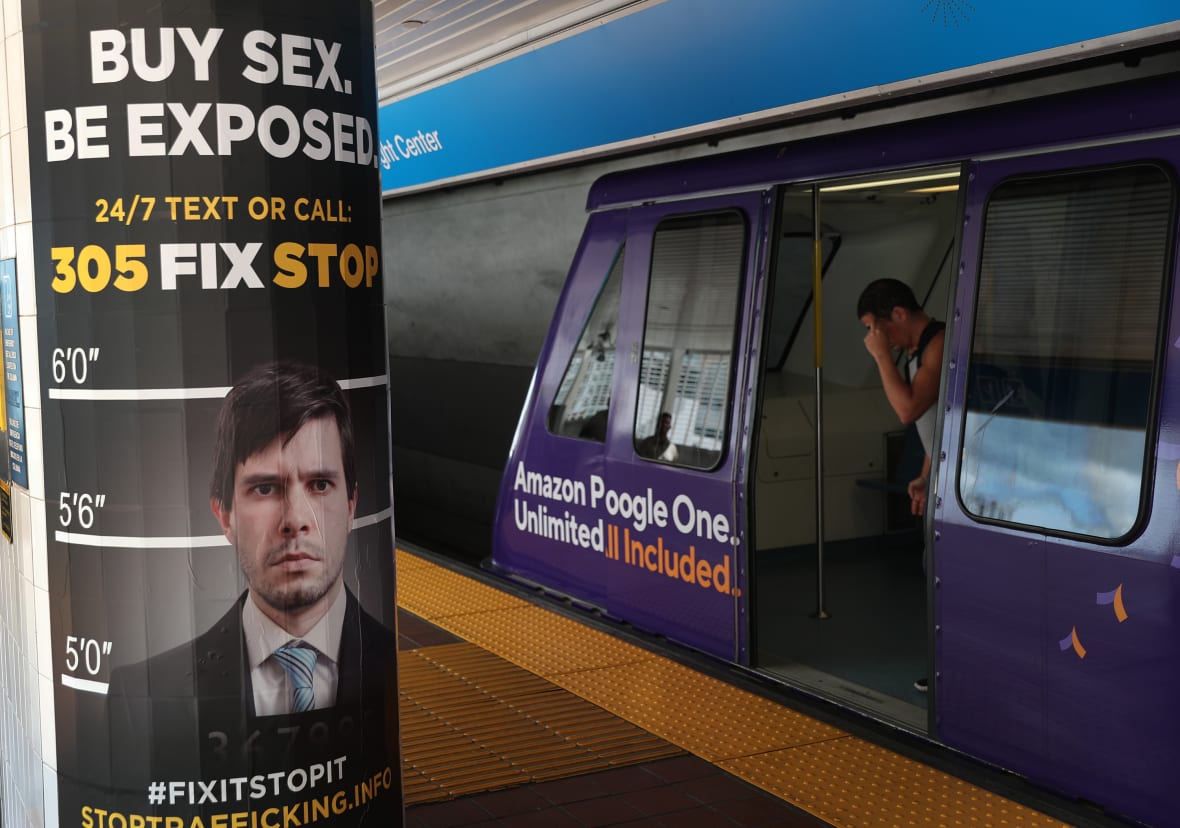Advocates say Congress needs to do more to help Black and brown human trafficking victims
Sex trafficking is a “continuum of the legacy of colonialism and the institution of slavery,” said Taina Bien-Aimé, executive director The post Advocates say Congress needs to do more to help Black and brown human trafficking victims appeared first on TheGrio.

Sex trafficking is a “continuum of the legacy of colonialism and the institution of slavery,” said Taina Bien-Aimé, executive director at the Coalition Against Trafficking in Women.
Human trafficking advocates say the U.S. Congress is not doing enough to crackdown on labor and sex trafficking and the disproportionate impact the industry has on Black and brown victims.
Earlier this month, congressional members held a hearing to discuss the implementation of the Trafficking Victims Protection Act as human trafficking continues to plague the nation. However, some critics say the government should do more.

Taina Bien-Aimé, executive director at the Coalition Against Trafficking in Women, told theGrio that the country’s laws are “failing to protect and failing to prevent” Black and brown women from being trafficked.
“If [lawmakers] want to prevent human trafficking, you have to target the sex buyers,” she argued.
The Trafficking Victims Protection Act of 2000 aimed to criminalize sex traffickers and those who engage in the human trafficking industry; however, human trafficking continues to be a prevalent issue in the U.S. and disproportionately impacts the Black and Latinx communities.
Bien-Aimé told theGrio that women of color are prone to human trafficking due to racial discrimination and socioeconomic status.
Traffickers target women who have “compounded vulnerabilities,” she explained, “whether it’s the foster care system or dysfunctional families or pervasive childhood sexual abuse.”
In New York, for example, Bien-Aimé claimed the biggest targets for sex trafficking are foster care residences. “You already have someone who’s unbelievably vulnerable and neglected, and we are allowing pimps and traffickers to recruit,” she said.
“What strikes me when we talk to legislators or district attorneys or other prosecutors, law enforcement, the public, there’s a lack of empathy,” she continued. “There’s an indifference to the suffering of Black and brown women who are being bought and sold.”
Robert Beiser, director of strategic initiative on sex trafficking at the Polaris Project, a nonprofit organization that works to prevent sex and labor trafficking, told theGrio that traffickers “use a racial lens when they choose who to exploit.”
“There’s exploitation in almost every country in the world along the lines of labor trafficking and sex trafficking,” Beiser explained.
“But, in the United States, the legacy of slavery and the following legacies of structural racism, institutional racism, individual racism have all led to a circumstance where Black and brown folks are much more likely to be in those situations of vulnerability,” he added.
Bien-Aimé told theGrio that sex trafficking is a “continuum of the legacy of colonialism and the institution of slavery.”
She said during slavery, Black women were particularly treated as “sexual currency.”
“That’s what the sex trade looks like today … we represent 6% of the population in the United States and yet, in most jurisdictions, we represent over 50% of the prostituted individuals,” she added.

Lillian Agbeyegbe, community engagement manager at the Polaris Project, told theGrio that Black and brown people are often trafficked by people they know, including “their families, their spouse, boyfriend, girlfriends and employers.” Because of close familiarity, the victims are sometimes unaware of their circumstances.
Beiser told theGrio that sometimes young children are sexually exploited due to financial hardship.
A family may say to their 14-year-old child, “I know a way that you can make money for us, and if you want to be part of this family, you have to help out and take care of this,” he said.
That young child is then encouraged to engage in sexual activities with another individual in exchange for money.
Agbeyegbe told theGrio that in order to combat human trafficking, it’s important to find solutions for underlying issues such as “housing affordability and accessibility.”
Trafficking is not “an isolated industry,” she explained, which is why it’s crucial that stakeholders look at “all the social determinants of health” to see “how our systems intersect to put people at risk for trafficking.”
She added, “Then we can see more progress from Congress as we present that information to them.”
Bien-Aimé told theGrio that, at this time, it’s unclear what percentage of the U.S. population is being trafficked due to a lack of data collected by federal and local governments.
“We know that human trafficking is globally the fastest-growing criminal enterprise, following guns very closely,” she said. “We always say you can only sell drugs once, but you can sell human beings over and over and over again,” making it harder to “quantify,” she said.
TheGrio is FREE on your TV via Apple TV, Amazon Fire, Roku and Android TV. Also, please download theGrio mobile apps today!
The post Advocates say Congress needs to do more to help Black and brown human trafficking victims appeared first on TheGrio.








![Chart Check [Hot 100]: J-Hope & GloRilla’s ‘Killin It Girl’ Makes History & Outsells the Entire Top 10 Combined](https://150893825.v2.pressablecdn.com/wp-content/uploads/2025/06/j-hope-killin-it-girl-thatgrapejuice-2025-billboard-hot-100-debut-k-pop.jpg)



![YouTube Star Mikayla Raines Dead by Suicide, Husband Blames ‘Ridiculous Claims and Rumors’ Spread Online [Video]](https://www.lovebscott.com/wp-content/uploads/2025/06/e165748d1fed4edea25728f6049153bf_md.jpg.webp)